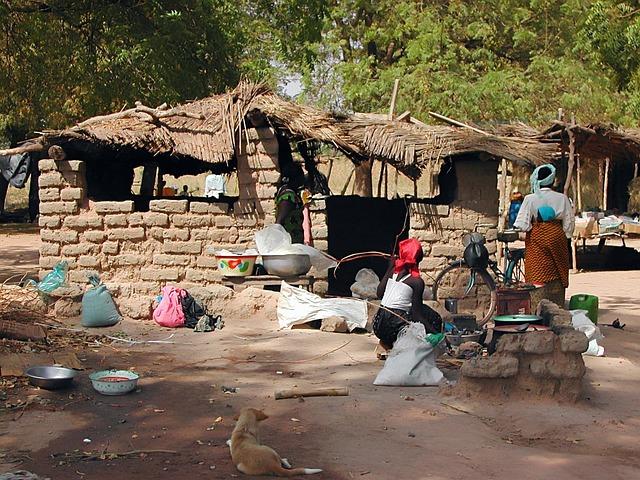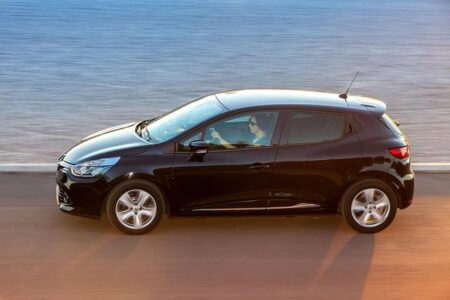Burkina Faso has taken a significant step toward sustainable transportation by launching the production of solar-powered electric cars, marking a milestone in the country’s push for green technology. This groundbreaking initiative, made possible through collaboration with Chinese partners, aims to reduce reliance on fossil fuels and promote clean energy solutions in West Africa. As the nation embarks on this ambitious project, it highlights the growing importance of international cooperation in addressing climate change and advancing renewable energy innovation.
Burkina Faso Advances Sustainable Transportation Through Solar-Powered Electric Car Production
In a groundbreaking collaboration, Burkina Faso has taken a significant leap towards greener mobility by launching the production of solar-powered electric vehicles. Supported by Chinese technology firms, this initiative aims to reduce the country’s reliance on fossil fuels while addressing rising urban pollution and energy challenges. The locally produced electric cars integrate state-of-the-art solar panels that enhance battery life and optimize energy efficiency, making them particularly suited for the region’s abundant sunlight. This move positions Burkina Faso as a pioneer in West Africa’s push towards sustainable transportation solutions.
The partnership focuses not only on manufacturing but also on creating employment opportunities and developing the technical expertise required for maintaining and advancing electric vehicle technologies within the country. Key features of the solar-powered cars include:
- Extended driving range thanks to integrated solar charging
- Low maintenance costs compared to conventional vehicles
- Environmentally friendly materials used in production
- Affordability tailored to local markets
| Specification | Details |
|---|---|
| Battery Capacity | 40 kWh |
| Solar Panel Efficiency | 22% |
| Estimated Range per Charge | 250 km |
| Charging Time (Standard) | 6 hours |
China’s Role in Supporting Burkina Faso’s Green Technology Development
China’s commitment to fostering sustainable innovation in Burkina Faso has become a cornerstone for the West African nation’s burgeoning green tech industry. Through a series of collaborative ventures, China has supplied both technological expertise and funding, enabling Burkina Faso to develop its first line of solar-powered electric vehicles. This strategic partnership goes beyond mere technology transfer; it includes capacity-building programs that equip local engineers and technicians with skills in renewable energy integration and electric mobility systems.
Key components of China’s support include:
- Provision of advanced photovoltaic panels optimized for Burkina Faso’s climatic conditions.
- Joint research initiatives focusing on battery efficiency and sustainable materials.
- Investment in manufacturing infrastructure that aligns with green production standards.
- Training and education programs fostering a new generation of green technology specialists.
| Support Aspect | Details | Impact |
|---|---|---|
| Technology Transfer | Solar tech & EV design | Boosts local innovation |
| Infrastructure Investment | New manufacturing plants | Creates jobs & production capacity |
| Capacity Building | Training engineers & technicians | Enhances technical expertise |
| Research & Development | Battery eco-efficiency projects | Improves sustainability |
Enhancing Infrastructure and Policy Frameworks to Foster Renewable Mobility Growth
Burkina Faso’s ambitious venture into solar-powered electric vehicles marks a transformative step in modernizing its transportation sector. To support this shift, the government is rapidly enhancing its infrastructure, focusing on expanding the charging network powered by renewable energy sources. Collaborative efforts with China have accelerated the deployment of state-of-the-art solar charging stations in urban centers and along major highways, ensuring accessible and reliable power for electric cars. This infrastructure development is coupled with strategic urban planning policies that prioritize sustainable mobility, such as dedicated electric vehicle lanes and incentivized parking spaces.
On the policy front, Burkina Faso is crafting a robust regulatory framework aimed at stimulating renewable mobility growth. Key measures include tax exemptions on electric vehicles, subsidies for local manufacturers, and import duty reductions on essential components. Additionally, the government is introducing stringent emissions standards to phase out fossil fuel-dependent vehicles gradually. These policies are designed to create a market-friendly ecosystem that encourages investments while promoting environmental sustainability.
- Expansion of solar-powered charging stations nationwide
- Tax incentives for electric vehicle purchases
- Urban mobility plans emphasizing green transportation
- Collaborative technology transfer agreements with Chinese companies
- Emissions regulations to accelerate fossil fuel phase-out
| Policy Area | Initiative | Impact |
|---|---|---|
| Infrastructure | Solar charging stations | Increased accessibility and convenience |
| Fiscal | Tax exemptions & subsidies | Boosted EV adoption rates |
| Regulatory | Emissions standards | Reduced carbon footprint |
Wrapping Up
As Burkina Faso embarks on this pioneering venture into solar-powered electric vehicle production with Chinese collaboration, the project marks a significant step toward sustainable transportation and technological advancement in West Africa. This initiative not only underscores the growing importance of renewable energy solutions on the continent but also highlights the potential for international partnerships to drive innovation and economic development. Moving forward, the success of Burkina Faso’s solar electric cars could serve as a model for other nations seeking to reduce carbon emissions while fostering local industry and green mobility.




